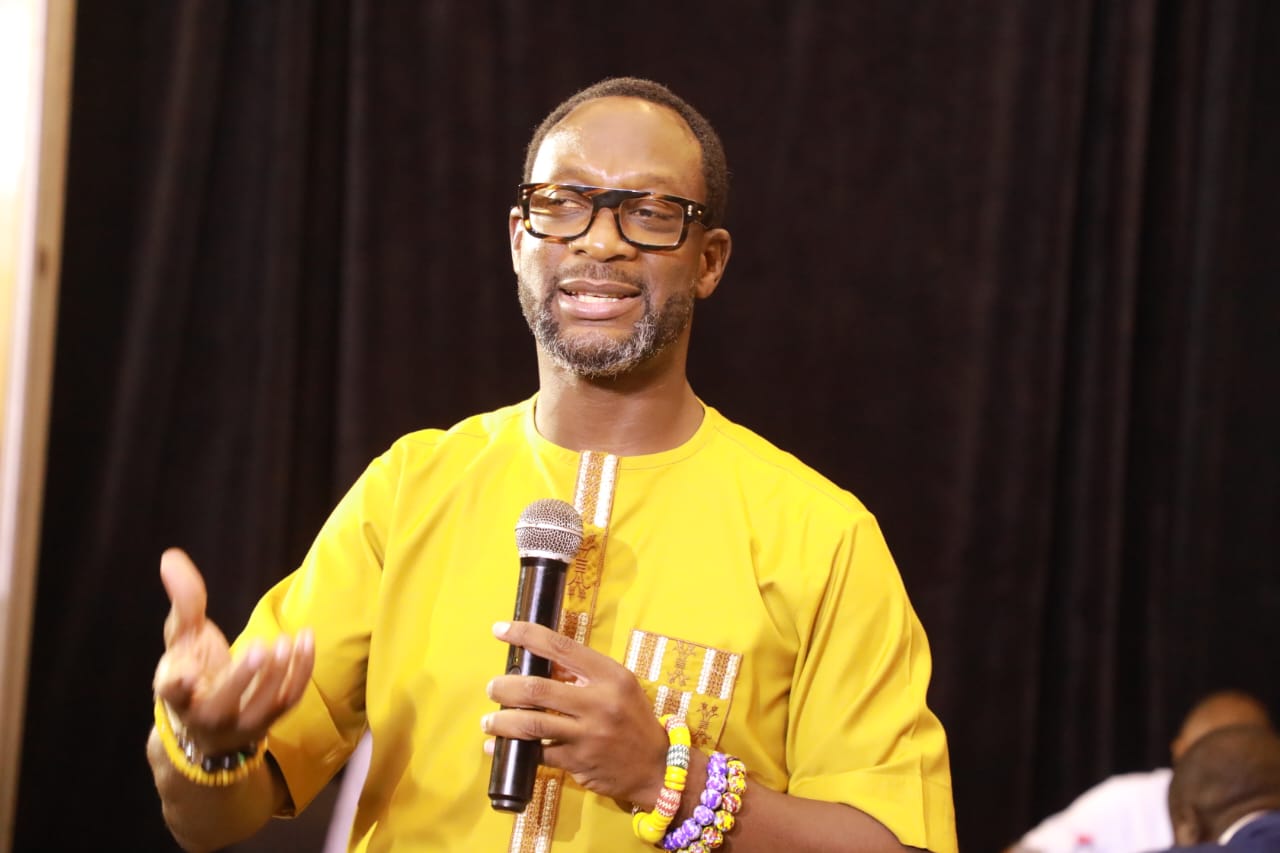
Accra, Ghana//-MTN Ghana says it has changed its rural telephony strategy slightly to connect more communities across the country with the best solution through modernised network infrastructure.
The Chief Executive Officer of MTN Ghana, Selorm Adadevoh who revealed this at the company’s 2023 Media and Stakeholder held in Accra, explained the company continues to expand its rural telephony to rope in more rural dwells to benefit from the connected digital world.
“What we are also doing is to improve the coverage of our existing infrastructure through modernisation”. So, for instance, if the existing cell sites could cover 5km and today it is extended that to more than 7km or 8km with the same infrastructure, that is what modernisation helps the company to do.
As the company expands its coverage for more than 2km or 3km, it doesn’t need to put rural sites in those locations to connect the people.
“That is the way we are expanding our coverage into some of these communities where we did not have coverage in the past. This work has been going on for the last two years”, Mr Adadevoh further explained.
Past strategy
In the past, we were implementing very specific sites. We have a partnership with Huawei to develop a solution called RuralStar, a flagship wireless solution for isolated communities, he said.
“We deployed about 400 of these ruralstar sites to make sure in very far locations where there is no fibre connectivity, no power, no formal electricity but these sites are powered by solar grid to provide telecoms connectivity for the people”.
The solution according to him, worked very well. But there are some limitations. Even in those locations, it gets congested.
The solution served its purpose at that time. The telecoms giant used the solution strategically for those types of environments.

However, the CEO noted that since then the government had also embarked on a mass broader rural telephony strategy called Rural Telephony in partnership with all the different operators in which MTN is part of.
Key strategic partnerships
In April 2022, MTN Ghana signed a national roaming agreement with Vodafone, commencing a pilot programme which allowed Vodafone subscribers in the Volta Region to roam on MTN’s network.
Following the success of the pilot, the parties signed a one-year agreement to extend national roaming on 2G beyond the Volta region to other areas.
MTN also reached an agreement with AirtelTigo for a four-month national roaming pilot to allow AirtelTigo subscribers to roam on MTN’s network in selected locations across the country.
“These agreements, together with various other rural telephony initiatives in partnership with the government, support our work to increase digital inclusion”, the Chief Executive Officer of MTN Ghana, Mr Adadevoh said in the company’s 2022 annual report.
These partnerships, according to him, would increase the efficiency of infrastructure spend in the industry overall, expand quality telecom coverage, accelerate the development and long-term viability of the telecoms industry, and support the national agenda of building a digital economy.
Additionally, MTN Ghana which provides a wide range of mobile and broadband services in the country is promoting digital inclusion, making it possible for millions of Ghanaians to benefit from the exchange of ideas and information.
Digital Inclusion
According to National Digital Inclusion Alliance (NDIA), an organisation that provides a unified voice for home broadband access, public broadband access, personal devices and local technology training and support programmes, digital inclusion refers to the activities necessary to ensure that all individuals and communities, including the most disadvantaged, have access to and use of Information and Communication Technologies (ICTs).
This includes five elements: affordable, robust broadband internet service; internet-enabled devices that meet the needs of the user; access to digital literacy training; quality technical support; and applications and online content designed to enable and encourage self-sufficiency, participation, and collaboration.
It added that digital inclusion must evolve as technology advances.
So, digital inclusion requires intentional strategies and investments to reduce and eliminate historical, institutional, and structural barriers to access and use technology.
The result of digital inclusion leads to digital equity which is a condition in which all individuals and communities have the information technology capacity needed for full participation in the society, democracy, and economy.
Bottom line
Digital Equity is necessary for civic and cultural participation, employment, lifelong learning, and access to essential services. Three-legged stool of digital inclusion are-internet access, computer devices, and digital literacy.
Electronic communication is one of the social services that has the potential of changing the living standards of rural communities and positioning Ghana as a digital hub in the sub-region.
By Masahudu Ankiilu Kunateh, African Eye Report


